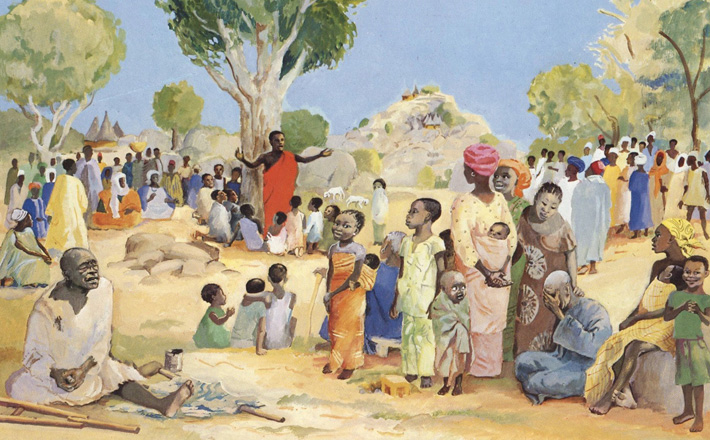Commentary on Micah 6:1-8
One of the most well-known half-verses in the Old Testament:
“What does the LORD require of you but to do justice, and to love kindness, and to walk humbly with your God?” (NRSV).
These words are etched into stone in the foyer of my church.
The Hebrew is relatively straightforward here. We do not need to parse the nuances of verbs such as “do” or “walk.” We can grasp the biblical concepts of “kindness” and “humility.” In fact, the passage shines because of its simple presentation. People can recite it by heart. Perhaps we could say that it is etched into the hearts of many Christians.
But there is always a danger to familiarity. The familiar can be overlooked or neglected.
We can arrive at a clearer understanding of this passage when we contextualize it within the overall passage. So, let’s examine the whole pericope, all eight verses to see what precedes this familiar, pithy, concluding statement.
First, the passage begins with dispute language in verses 1-2. God and God’s people are contending; God is upset with the people and wishes to argue with them through the prophetic voice of Micah. So, God summons “earthly” observers such as the mountains, hills, and earth’s foundations to listen to this dispute.
God will contend with Israel.
Next, in verses 3-5, God provides a recitation of all the wonderful gifts God has provided. This account, dense with imagery, biblical figures, and place names, recounts God’s action for the sake of Israel. It is a brief salvation history with God playing the role of liberator, savior, and provider.
In summary, God says, “I have something I need to bring to your attention, a controversy I need to voice, so listen up. What exactly have I done wrong? I am constantly saving you so that you will always remember my righteous deeds.” It is interesting that God does not accuse Israel of any explicitly wrongdoing; instead, God delivers a self-defense speech. Perhaps, then, it was the case that the people are the ones who actually had a contention with God, a dispute which is not recorded in this prophetic book. Or perhaps this is God’s expert use of rhetoric to remind the people of past acts of salvation.
Now, it is time for the people to respond to God’s complaint. But they have nothing to say in light of God’s powerful and reassuring speech except to ask questions.
The people do not respond with argumentation. They inquire about proper offerings that might be fitting as a response to God’s saving acts.
Finally, in verses 6-8, the language of dispute is dropped altogether, and we read a series of rhetorical questions. Scholars typically compare these questions to those found in entrance liturgies such as Psalm 15, Psalm 24 (see also Isaiah 33:14-16). They are questions one might find worshippers asking as they make their way to the Temple. The four questions heighten the theological drama by identifying progressively excessive gifts: the first question does not name any particular offering; the second question speaks of year old calves; the third question jumps to thousands of rams and ten thousands of rivers of oil; the final question mentions child sacrifice.
The central issue with all the questions concerns the gift, the sacrifice.
What is it, O God, that you want from us? What do you require? Just tell us your favorite offering, and we will surely sacrifice it — even if it is a rather extreme request.
The last verse of this passage — the one most familiar to us — turns the four questions asked in verses 6-7 away from their focus on the types of offerings and toward a focus on the type of person.
God does not want a specific type of offering. God wants a specific type of person.
The passage culminates with an answer. It may not be the answer the people expect. In fact, it is not the answer they seek. They have focused on offerings — small and large. They have emphasized sacrificial worship to the exclusion of justice and kindness.
The people have rightly considered the nature of their offerings. But God’s concern here is to point out that God requires more than sacrifice when entering God’s presence.
God clarifies what is good. The answer is rather straightforward:
To do justice.
To love kindness.
To walk humbly with your God.
Now that the clarification has been given to us, the more difficult task is to live into these requirements as God’s people. Justice is perhaps not our default operating system. Humility is not second nature.
What actions do these requirements call forth from us as we look into our neighborhoods and cities?


January 29, 2017